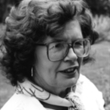A letter of Mary: a Mary Russell novel
Description
More Details
9781427251510
9780783880679
9780312207281
Similar Series From Novelist
Similar Titles From NoveList
Similar Authors From NoveList
Published Reviews
Booklist Review
In King's latest featuring Mary Russell, Oxford scholar, detective, and wife of Sherlock Holmes, Russell and Holmes are visited by Palestinian archaeologist Dorothy Ruskin, who leaves the pair an ancient parchment that is purportedly a letter from Mary Magdalene in which Mary calls herself an apostle of Jesus. Soon after, Ruskin is killed by a hit-and-run driver, and the Holmes' house is ransacked, presumably by people who want the document. King is an elegant writer, and the book is at its best when detailing the complicated relationship between Holmes and Russell. The mystery element is well plotted as well, but if readers are expecting a story about religious upheaval caused by the discovery of a female apostle of Christ, they will be disappointed. Once translated, the letter is barely mentioned again, and when the motive for murder turns out to be family greed, rather than the power of history, even Holmes says, "I had such hopes for this case . . . it's hardly worth any of my attention." Despite the rather flat ending, there are still fine characters here and plenty of tantalizing moments. --Ilene Cooper
Publisher's Weekly Review
King set a new paradigm for Holmesian scholarship with her inspired invention of a retired, still energetic Sherlock Holmes who trained young Mary Russell in The Beekeeper's Apprentice (1994) and then embraced her as a professional partner and wife (A Monstrous Regiment of Women, 1995). This third in the series, set in 1923, involves the suspicious death of Dorothy Ruskin, an amateur archeologist recently returned from Palestine, who gave Mary, an academic theologian, a letter dated about A.D. 70 written by "Mariam the Apostle" to her sister in Magdala. Mary Magdalene? An Apostle? Holmes and "Mrs. Sherlock," as Lord Peter Wimsey addresses her in a funny cameo, collaborate. Red herrings define the political and cultural climate: a retired colonel's opposition to women's suffrage; Dorothy's interest in Zionism; the British Near East scholar/spy network; the tumultuously upsetting implications of the letter for organized Christianity. The investigation also includes the Ruskin family. King's achievement is her depiction of the complex relationship between two individualists. Almost 40 years apart, they're fondly indulgent of one another's idiosyncrasies and share intellectual camaraderie, companionable humor and sexual attraction. While Sherlock delivers ongoing tutelage in arcane clue analysis, Mary hypnotizes a witness to prod her memory. If you can't imagine the misogynist Sherlock Holmes sharing domestic bliss, this novel will make you a believer. Major ad/promo; author tour; paperback rights: Bantam; audio rights: Durkin Hayes and Recorded Books.(Jan.) (c) Copyright PWxyz, LLC. All rights reserved
School Library Journal Review
YAAs this latest Mary Russell/Sherlock Holmes escapade opens, the happy couple is settled in a cottage in Sussex. It is now 1923, and Mary and her husband set out to find the assumed murderers of her dear friend Dorothy Ruskin, an archaeologist working in Palestine at the beginning of the Zionist movement. The detectives employ all of the old tools of analysis, disguise, and reasoning for which Holmes is so well known to solve the puzzle. This story contains as much, if not more, of the wit and intelligence of The Beekeeper's Apprentice (1994) and A Monstrous Regiment of Women (1995, both St. Martin's), as well as a fully developed relationship between the partners. King continues to provide period details and she maintains the integrity of Holmes's character as established by Sir Arthur Conan Doyle. This is as good or better than the first and hopefully a harbinger of more well-constructed and literate adventures featuring this unusual but highly involving twosome. The mystery is well developed and the history and feelings of the time are evoked with much skill. A sure hit with previous fans and a fine introduction to a dynamic duo.Susan H. Woodcock, Kings Park Library, Burke, VA (c) Copyright 2010. Library Journals LLC, a wholly owned subsidiary of Media Source, Inc. No redistribution permitted.
Kirkus Book Review
Oxford theologian Mary Russell, now living quietly in Sussex with her husband Sherlock Holmes, is thunderstruck with the explosive potential of a document her old acquaintance, amateur archeologist Dorothy Ruskin, brings her from a dig in Palestine: a letter from one Mariam of Magdala identifying herself as an apostle of Jesus. What would the Church say to the possibility of a woman having been a full-fledged apostle? What might the letter do for our understanding of Mary Magdalene? And what to make of the persistently unvoiced parallels between Russell and her storied progenitor? Soon after leaving Russell and Holmes, Dorothy Ruskin is killed in a traffic accident her hosts prove was murder as they fall into a scramble for Miss Ruskin's meager possessions--and into a long, keen disappointment for fans of King's distinctively feminist Sherlockian pastiches (A Monstrous Regiment of Women, 1995, etc.). Plotting has never been King's strong suit (as it never was Conan Doyle's), but, here, her episodic story--Russell and Holmes going as spies into the houses of suspects whose personalities pale before the richness of the inspectors' before allowing Holmes to produce one of his most gratuitous final coups--is surprisingly unworthy of her richly suggestive premise. Fans will find all of King's accustomed literacy and empathy on display. But, like Amanda Cross, she seems bent this time on crossing the line from the detective story to the discursive essay. Even Holmes is muffled. (Author tour)
Booklist Reviews
In King's latest featuring Mary Russell, Oxford scholar, detective, and wife of Sherlock Holmes, Russell and Holmes are visited by Palestinian archaeologist Dorothy Ruskin, who leaves the pair an ancient parchment that is purportedly a letter from Mary Magdalene in which Mary calls herself an apostle of Jesus. Soon after, Ruskin is killed by a hit-and-run driver, and the Holmes' house is ransacked, presumably by people who want the document. King is an elegant writer, and the book is at its best when detailing the complicated relationship between Holmes and Russell. The mystery element is well plotted as well, but if readers are expecting a story about religious upheaval caused by the discovery of a female apostle of Christ, they will be disappointed. Once translated, the letter is barely mentioned again, and when the motive for murder turns out to be family greed, rather than the power of history, even Holmes says, "I had such hopes for this case . . . it's hardly worth any of my attention." Despite the rather flat ending, there are still fine characters here and plenty of tantalizing moments. ((Reviewed January 1 & 15, 1997)) Copyright 2000 Booklist Reviews
Publishers Weekly Reviews
King set a new paradigm for Holmesian scholarship with her inspired invention of a retired, still energetic Sherlock Holmes who trained young Mary Russell in The Beekeeper's Apprentice (1994) and then embraced her as a professional partner and wife (A Monstrous Regiment of Women, 1995). This third in the series, set in 1923, involves the suspicious death of Dorothy Ruskin, an amateur archeologist recently returned from Palestine, who gave Mary, an academic theologian, a letter dated about A.D. 70 written by "Mariam the Apostle" to her sister in Magdala. Mary Magdalene? An Apostle? Holmes and "Mrs. Sherlock," as Lord Peter Wimsey addresses her in a funny cameo, collaborate. Red herrings define the political and cultural climate: a retired colonel's opposition to women's suffrage; Dorothy's interest in Zionism; the British Near East scholar/spy network; the tumultuously upsetting implications of the letter for organized Christianity. The investigation also includes the Ruskin family. King's achievement is her depiction of the complex relationship between two individualists. Almost 40 years apart, they're fondly indulgent of one another's idiosyncrasies and share intellectual camaraderie, companionable humor and sexual attraction. While Sherlock delivers ongoing tutelage in arcane clue analysis, Mary hypnotizes a witness to prod her memory. If you can't imagine the misogynist Sherlock Holmes sharing domestic bliss, this novel will make you a believer. Major ad/promo; author tour; paperback rights: Bantam; audio rights: Durkin Hayes and Recorded Books.(Jan.)
School Library Journal Reviews
As this latest Mary Russell/Sherlock Holmes escapade opens, the happy couple is settled in a cottage in Sussex. It is now 1923, and Mary and her husband set out to find the assumed murderers of her dear friend Dorothy Ruskin, an archaeologist working in Palestine at the beginning of the Zionist movement. The detectives employ all of the old tools of analysis, disguise, and reasoning for which Holmes is so well known to solve the puzzle. This story contains as much, if not more, of the wit and intelligence of The Beekeeper's Apprentice (1994) and A Monstrous Regiment of Women (1995, both St. Martin's), as well as a fully developed relationship between the partners. King continues to provide period details and she maintains the integrity of Holmes's character as established by Sir Arthur Conan Doyle. This is as good or better than the first and hopefully a harbinger of more well-constructed and literate adventures featuring this unusual but highly involving twosome. The mystery is well developed and the history and feelings of the time are evoked with much skill. A sure hit with previous fans and a fine introduction to a dynamic duo. Copyright 1998 School Library Journal Reviews




















































